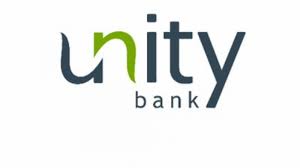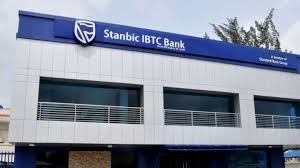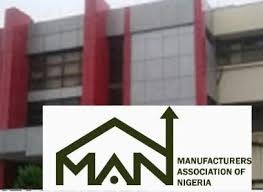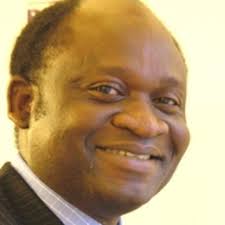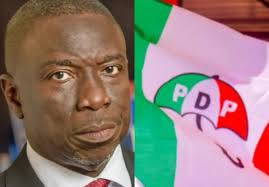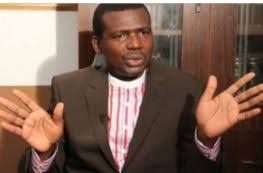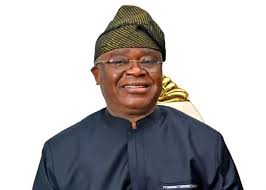In this report, Lagos lawyer and human rights crusader, Ebun-Olu Adegboruwa, SAN, explores the legal and socie
tal frameworks guaranteeing access to justice and the challenges impeding its realisation in Nigeria. The report which also underscores the fact that access to justice ensures societal balance, promotes accountability, and prevents resorting to anarchy, argues that for justice to be meaningful, it must be accessible to all.
Background
Article 7 of the African Charter on Human and Peoples’ Rights (Ratification and Enforcement) Act, 2004, states that “every individual shall have the right to have his cause heard.’ This is also echoed in Article 8 of the Universal Declaration of Human Rights that ‘everyone has the right to an effective remedy by the competent national tribunals for acts violating the fundamental rights granted him by the constitution or by law.’
The Supreme Court of Nigeria adopted this concept as its motto through the Latin: maxim ubi jus ibi remedium, meaning where there is a right, there is a remedy. The learned authors of A Dictionary of Law, define it in these terms: ‘the principle is that where one’s right is invaded or destroyed, the law gives a remedy to protect it or damages for its loss. Further, where one’s right is denied, the law affords the remedy of an action for its enforcement.
This right to a remedy therefore includes more than is usually meant in English law by the term “remedy”, as it includes a right of action. Wherever, therefore, a right exists, there is also a remedy. Ashby v White (1703) 14 St Tr 695, 92 ER 126.
This right is inherent in mankind itself as a way of preserving peace, law and order in the society thus avoiding resort to anarchy, lawlessness and all the ugly instances of self-help.
The status quo ordinarily leans in favour of the rich, the mighty and those in authority, such that in many cases, policy formulation and implementation result in the breach of entrenched rights and privileges. The resort to justice by the victim is usually considered to be preferable and beneficial.
In this regard, Article 2 of the International Covenant on Civil and Political Rights provides that each party to the Covenant shall ‘ensure that any person whose rights or freedoms as herein recognised are violated shall have an effective remedy’
Findings from 2023 Justice Needs and Satisfaction (JNS) Report
A recent study by the Ministry of Foreign Affairs of the Kingdom of The Netherlands in collaboration with the Communication & Marketing Research Group (CMRG) Limited gave some detailed perspectives on the utility of the justice sector in Nigeria.
According to the report: “The Justice Needs and Satisfaction (JNS) 2023 study presents the justice experiences of 6,573 randomly selected Nigerian adults. The data and findings outline the legal problems they encounter, their impact, and the steps people take to address their legal needs.
“The 2023 JNS Report is an essential tool for understanding the needs of people in Nigeria, identifying areas that require improvement, and monitoring the progress of various justice initiatives currently underway.”
Common legal problems
Specifically, the study finds that approximately 81% of Nigerians experienced at least one legal problem in the past year, with many facing multiple problems while 55% of all legal problems were resolved either partially or completely, with about 82% of those resolutions deemed fair or very fair.
The study also finds that most common legal problem categories experienced by Nigerians include disputes with neighbours, domestic violence, land disputes, crime, and housing problems while approximately 86% of Nigerians with a legal problem take some form of action to address their most serious problem.
Sources of help to legal problems
Besides, it was found out that when addressing their most pressing legal problems, people often rely on their inner circle, frequently seeking help from family and friends and that beyond one’s social network, the most frequent sources of help include the police (11%), community/traditional leaders (8%), religious authorities (6%), landlords (6%), local public authorities (5%), and lawyers (5%).”
Stakeholders in the legal profession have always known about this alarming situation but they carry on as if it is normal.
Need for access to justice
The right of access to justice bears a universal meaning that should not be subject to the vagaries of territories which are hostile to its affirmation.
The Legal Information Institute of the Cornell Law School, defines it as “the ethical, philosophical idea that people are to be treated impartially, fairly, properly, and reasonably by the law and by the arbiters of the law, that laws are to ensure that no harm befalls another, and that, where harm is alleged, a remedial action is taken – both the accuser and the accused receive a morally right consequence merited by their actions.
Justice is a legal structure or system that is designed to judge in a general sense who should be accorded a benefit or burden when the law is applied to a person’s factual circumstances.”
The idea of justice springs from the fact that human beings are created equal but by reason of personal strength, status, wealth or influence, one person may be placed in a position of advantage more than the other such that if they were to plead on any matter in dispute between them, the strong may lord it over the weak.
The idea of justice is meant to create a balance for society, in order to avoid the rule of self, to abolish any preference for arbitrariness and the regime of might over reason. Justice creates the forum where persons who have grievances can table them for resolution, so that the wrong person can be corrected and the right person justified and appeased. Society thrives on the principle of justice because it gives a sense of assurance to everybody, be it the weak, the strong or the handicapped that given all variables, the system will work to correct all wrongs and offer a remedy to the aggrieved.
Factors hindering access to justice in Nigeria
Many factors contribute to denial of access to justice, depending on which perspective the issue is viewed.
The focus of this discourse is to highlight the impact of the declining population of lawyers on justice administration, flowing from the JNS study.
By conservative estimates, Nigeria’s population is said to be above 200 million while the number of lawyers is roughly around 200,000 to 250,000.
Included are members of the judiciary, being Magistrates, Judges, Justices and Tribunal members. This group also includes lawyers who have ventured into politics, business and those who have travelled out of Nigeria. And I guess it also includes those who have passed on to glory.
Effectively, therefore, the number of lawyers who are available to render legal services to those who desire it is declining every day. It is projected that Nigeria has about 3,000 active law firms with 6% increase per year.
The standard law firms are mostly located in the urban areas of Lagos, Abuja, Port-Harcourt, Kaduna, Benin, Kano, etc.
Given the poor state of infrastructure, especially power supply, it is very expensive to maintain a law firm.
In contrast, the Body of Benchers admits an average of 4,000 students into the Nigerian Bar every year, with a growing population of unemployed lawyers who mostly crowd around these law firms.
Other options available to access justice
Although it is not totally abhorrent to have alternative dispute resolution mechanisms, resort to arbitrariness in these fora cannot be ruled out.
In the local courts set up in religious places and in the villages, the absence of a written code of adjudication presents such options that are sometimes unenviable.
Notwithstanding these reservations, the JNS study ranks the police as the top preference by those who seek remedy standing at 11%, followed by community/traditional leaders with 8%, religious authorities with 6%, landlords with 6%, local public authorities 5% and lawyers 5%.
Why citizens boycott lawyers to resolve issues
From the analysis above, it is pertinent to ask: Why do citizens boycott lawyers to have their matters resolved by traditional rulers and religious entities?
First, the lawyer to citizen ratio is very low. Second, the cost of securing quality legal service is very high. Third, the uncertainty of redress is pushing potential litigants to unusual terrains.
Fourth, the unreasonable delay associated with the administration of justice in Nigeria has no rival elsewhere in the globe. Fifth is the issue of corruption, through which a right cause is buried in absurd technical interpretations, judicial conflicts and legal abracadabra.
There are of course cultural and religious factors which discourage access to justice, whereby the myth has been falsely planted in the minds of people that no one goes to court to become friends thereafter, forgetting that most legislations contain provisions that encourage settlement between warring parties.
Issues with ADR mechanisms
The right of access to justice as encapsulated in section 6 (6) (b) of the Constitution of the Federal Republic of Nigeria, 1999 as amended, gives the power of adjudication to the courts.
This right is granted unfettered, subject in some cases, to certain legal limitations, whereas the sources listed in the JNS report lack the basic ingredients of justice administration, especially the right of appeal to competent organs.
When the police judge you as guilty, to whom do you take your case? If you are not satisfied with the verdict of your pastor or imam, do you stop worshipping in that church or mosque?
The point to note about the statutory guarantee of the right of access to justice is that it brings everybody and every person under the law such that the concept of justice cannot be meaningful without access as its denial is akin to absence of justice.
Recommendations to improve access to justice
Government Subsidies: Part of the solution is for the government to subsidize access to justice by way of reducing the cost of legal services and improve infrastructure.
Expanded Legal Education: Furthermore, the issue of backlog of law students should be addressed urgently by way of encouraging more states to partner together to build more law schools so that the training institutions can liberalize the admission process for citizens who genuinely wish to study law and increase the number of trained lawyers
Alternative Dispute Resolution (ADR): Strengthen ADR mechanisms while ensuring they adhere to principles of justice, such as the right to appeal.
Judicial Reforms: Tackle delays, corruption, and inefficiencies in the justice system.
